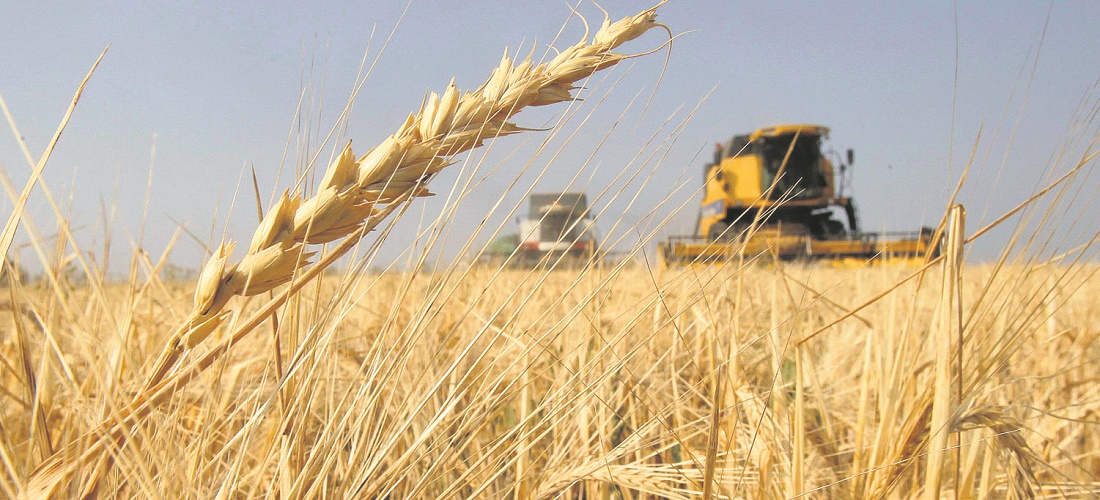
Argentine wheat crop cutback forces Brazil to buy from Russia
Nov, 18, 2022 Posted by Gabriel MalheirosWeek 202246
A severe drought, followed by several episodes of frost, is expected to reduce Argentine wheat harvest by 40% from initial estimates to around 12 million tonnes. Since Brazil purchases nearly 6 million tonnes of wheat from its neighbor in the south, specialists predict that Brazilian mills, especially those in the Northeast, will need to resort to other suppliers, such as Russia and the USA.
Although the forecasts point to an increase in imports from other countries from May 2023 forward only, some mills in the Northeast have already taken action. For example, several sources confirmed that seven ships with Russian grains will arrive in Brazil in the coming months. “The crop failure has already caused the price of Argentine wheat to rise at an unusually unfavorable time, close to the harvest. Thus, mills in the Northeast started to buy Russian grain, which is cheaper,” says Christian Saigh, vice president of the Wheat Industry Union of São Paulo (Sindustrigo).
On the 16th, wheat available FOB (without import costs) in Argentina cost an average of US$ 370 per tonne, while Russian wheat was priced at US$ 330. The French/European product costs around US$ 350, while the American or Canadian wheat costs around US$ 430.
The Argentine wheat harvest begins this month and runs through January. Usually, trade with Brazil intensifies at the beginning of the year; therefore, Saigh believes that the stock available for export in the neighboring country will end around May. “The war in Ukraine made other countries see Argentina as a potential supplier of wheat, so Brazil has more competition.”
According to Luiz Carlos Pacheco, analyst and partner at T&F Consultoria, it isn’t easy to know how much Argentina has on hand at the moment because the government’s export quota refers to the volume that trading companies can buy rather than what actually leaves the country. “8.5 million tonnes of the quota of 10 million tonnes were traded, generating tax collection. However, this does not imply that this volume has already reached a foreign destination,” he claims.
Estimates drop
Last week, the Rosario Grain Exchange lowered its forecast for Argentina’s 2022/23 harvest by 1.9 million tonnes to 11.8 million. The previous week, the Buenos Aires Grain Exchange had already reduced its estimate by 1.6 million tonnes to 12.4 million. The initial calculation for the season was 20.5 million tonnes of wheat.
Despite this, two factors may cause the demand for Brazilian imports to be lower than in previous years. First, according to the National Supply Company, Brazil will have a record wheat harvest of 9.5 million tonnes. This will allow for an internal reorganization of the cereal, which should migrate from Rio Grande do Sul to Paraná (which also experienced crop failure) and Sao Paulo.
Another point is that the mills are expected to grind less wheat this year than in 2021 because of a reduction in consumption.
Consumption retraction
Saigh from Sindustrigo notices that the entire industry is experiencing a retraction in consumption following the pandemic’s peaks in 2020 and 2021. Brazil imported 4.6 million tonnes from January to September, compared to 4.9 million during the same period last year.
Please find below the track record of the volume of wheat (hs 1001) imported into Brazil between Jan 2019 and Sep 2022. The data is from DataLiner.
Wheat imports – Brazil | Jan 2019 – Sep 2022 | WTMT
Source: DataLiner (click here to request a demo)
Daniel Kummel, CEO of Arapongas Mill and president of the Wheat Industry Union of Paraná (Sinditrigo-PR), recalls that Brazil has a quota of 750 thousand tonnes, exempt from the Mercosur’s Common External Tariff (TEC) and predicts that it will be used in 2023.
However, unlike Canadian and American wheat, Russian wheat can only be imported by mills on the coast. The Russian product’s entry was restricted a few years ago by the Ministry of Agriculture to reduce the risk of pests, fungi, and weeds.
Pacheco, from T&F, also believes that some trading companies will prefer not to buy Russian grain while the war continues for fear of being subject to restrictions from Western governments.
Source: Valor Econômico
To read the full original article, please go to: https://valor.globo.com/agronegocios/noticia/2022/11/18/quebra-argentina-faz-brasil-buscar-trigo-russo.ghtml
-
Automotive
Mar, 03, 2022
0
Brazil’s exports of high-tech products fall to worst level since 2001
-
Shipping
Apr, 28, 2021
0
MSC launches global electronic bills of lading
-
Grains
Nov, 03, 2021
0
Soybean planting pace in Brazil is the 2nd fastest in history
-
Ports and Terminals
Aug, 11, 2022
0
Brazilian gov’t keen to privatize Port of São Sebastião, informs secretary


